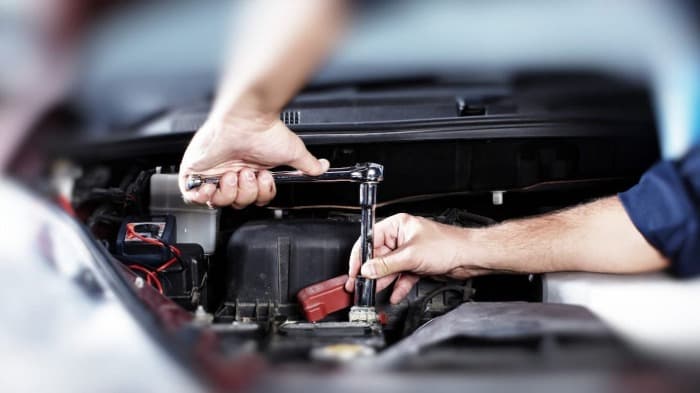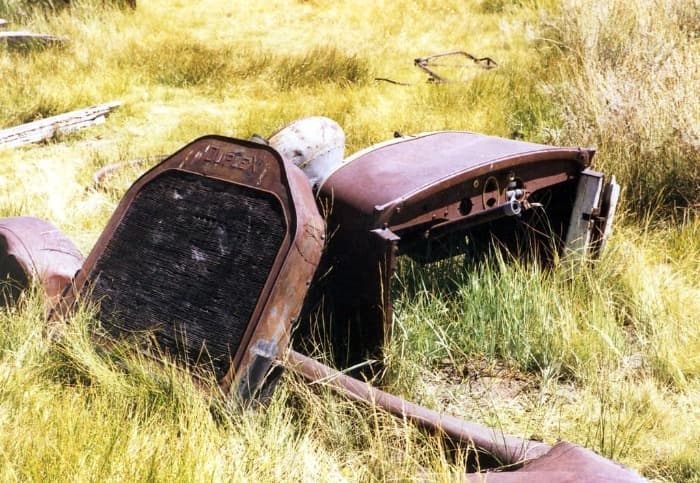Table of Contents
- Car maintenance and why it is important
- Overview of the different parts of a car and what needs to be maintained
- Timeline for when different parts need to be checked or replaced
- Tips on how to keep your car in good condition between visits to the mechanic
- Include links to resources where readers can find more information about car maintenance
- Conclusion
- Frequently Asked Questions about car maintenance timeline
Home » Car Maintenance Timeline: Guide to Keeping Your Car in Peak Condition
Your car is one of your most important investments, so keeping it in peak condition is important. To help you out, we’ve put together a car maintenance timeline that covers all the basics. From oil changes to tire rotations, this guide will help you keep your car running smoothly for years to come.
We know keeping your car up isn’t the funniest or sexiest thing alive, but it is very important. It is like going to the gym for that beach bod, or whatever you want to equate it to. You put the work in; you get the benefits. And while having a working car isn’t super exciting, it is important. So I guess pretty different from a 6 pack for the beach… and more just like being able to walk on the beach.. but either way walking or driving they are both pretty important … so don’t skip leg day.
Car maintenance and why it is important
Keeping your car in proper working order is essential for its longevity and the safety of anyone operating it. Being proactive about car maintenance involves regular oil changes, tire rotations, brake inspections, and anything else to help ensure smooth operation.
Taking the time to ensure your vehicle is running as it should will prevent larger and more costly repair bills down the line. Furthermore, taking good care of your vehicle pays off in topics such as resale value or if you choose to trade it in. You’ll want to be able to prove that you’ve done your due diligence when it comes to keeping the car functioning properly. Car maintenance may not always be a fun process, but it is certainly one that should not be forgotten!
Overview of the different parts of a car and what needs to be maintained
To keep your car running in top condition, it is important to know what parts make up the car and how and when they should be maintained properly. Cars are made up of various components, from major systems like the engine and transmission to smaller components like headlights and spark plugs.
Maintenance for your vehicle involves more than just changing the oil often; other integral parts, like brake pads, hoses and belts, should also be inspected regularly to ensure they function correctly. In addition, other vital components like the battery, tires, fluids, and filters all need attention for safety reasons and to extend your vehicle’s life. All of these things together can help you stay ahead of any costly repairs down the road. Taking proper care of your car is a great way to bring out its best performance.
Timeline for when different parts need to be checked or replaced

Creating an easy-to-follow timeline for parts inspections and replacements is essential for keeping your vehicle running safely and at peak performance. Beginning with a yearly checkup for all major components, break down the timeline by season so that more detailed inspections can be done during the appropriate maintenance period.
For example, checking brakes and steering components should be done in the spring months, followed by regular checks of tires, fuel lines, emissions systems, etc., throughout the summer until the fall when engine oil, filters, power steering fluids, radiator fluids and more need to be examined. Depending on use, a thorough assessment should also be done every three to five years. Keeping track of mileage or recommended service intervals will help you stay organized and well-informed when upcoming scheduled maintenance is needed.
Tips on how to keep your car in good condition between visits to the mechanic
It’s easy to forget to keep your car in good condition between visits to the mechanic, but taking a few simple steps each month can make a big difference. Start by checking fluid levels regularly, topping up if needed, and monitoring engine oil levels and changes as recommended in your vehicle’s manual.
Regular vacuuming and waxing help maintain paint quality, while monthly tire pressure checks will extend the lifetime of your tires and improve fuel economy. Additionally, keep an eye on how long it takes for your car to start after turning the ignition, as that could indicate a battery issue. Taking these steps between regular trips to the mechanic can help prolong the lifespan of your car and save you money in costly repairs down the line.
Include links to resources where readers can find more information about car maintenance
While researching car maintenance can be an overwhelmingly daunting task( not fun ), the internet provides countless resources to help narrow down the topic. From websites such as AutoMD.com or RepairPal.com, which provide step-by-step procedures for repairs and maintenance, to Scott’s Car Clinic YouTube channel that guides viewers through fixing problems on their own cars, readers of all expertise can find the information they need. All this information is just a few clicks away!
Conclusion
Regular car maintenance is essential ( read as important as keeping your legs from atrophying by walking around throughout the day) to keep your vehicle running properly and avoid costly repairs down the road. By familiarizing yourself with the different parts of your car and knowing when they need to be checked or replaced, you can keep your car in good condition and extend its lifespan. So, keep your fluids clean and clear and enjoy being able to drive your car when you need to.
Frequently Asked Questions about car maintenance timeline
How often should I change my car’s oil?
That depends on the make of your car, driving habits, and type of oil used. In general, however, most mechanics recommend an oil change every 3,000 miles or every 3 months, whichever comes first. To be safe, checking your car’s owner’s manual for specific instructions is always a good idea.
How often should I rotate my car’s tires?
Rotating your car’s tires is an important part of regular maintenance that should not be overlooked. It helps ensure even tire wear, which can extend the life of your tires and save you money on replacements. Rotating your tires regularly also improves vehicle handling, allowing all four tires to share the weight and stress caused by acceleration.
How often should I have my car’s brakes checked?
Brakes should be checked regularly for wear and tear. Most mechanics recommend having them inspected every 6,000 miles or every 6 months, whichever comes first. Failing to do so can result in decreased braking power and even a complete brake failure.
How often should I have my car’s fluids checked?
Fluid levels should be monitored regularly and topped up as needed. Doing so will help keep your car in good condition and prevent costly repairs. Most mechanics recommend checking fluid levels every 3,000 miles or every 3 months, whichever comes first.
How often should I have my car’s battery checked?
The battery should be checked at least once a year and more often if the car is not driven often. A battery that is not regularly checked may eventually fail, leaving you stranded.


